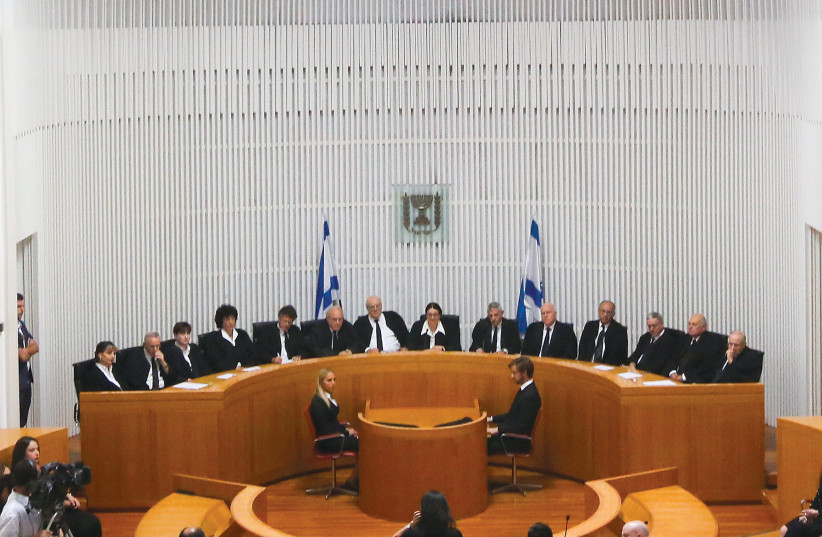More than 450 former shluchim (emissaries) of the four national institutions (World Zionist Organization, the Jewish Agency, Jewish National Fund and Keren Hayesod) signed an open letter to the government calling for a freeze of the judicial overhaul and to enter negotiations under the president’s outline.
In the letter, they write that they are “following the judicial reform legislation with anxiety, not only on the state of Israeli society, but also regarding the effect on Jewish communities in the Diaspora,” adding that they “call on the Israeli government to freeze the legislative process and enter into an outline of negotiations, in the spirit of the initiative of the president.”
This group of former emissaries didn’t take an active political stance regarding the reforms but called for dialogue and unity, as well as for the consideration of voices from Diaspora Jews.
“We all served the Israeli society and the Jewish people all over the world. We always knew that our Zionist faith was based on Israel being a Jewish and democratic state. We taught, educated and defended Israel, the state of the Jewish people, as a thriving democracy, though not without its problems – but one that has an elected government; a representative and vibrant Knesset; and an independent, firm court.”
These former emissaries to Jewish communities across the globe stated that they would “boast about the fact that Israel is the only democracy in the Middle East.”

Letter warns judicial reforms could deal 'fatal blow' to Israel-diaspora relations
Now, however, the emissaries are receiving negative feedback from these very communities. “The conversations we have with our friends overseas, as well as the statements made by the main representative [Jewish] organizations, leave no room for doubt: the legislative changes currently being discussed, if not accepted and anchored by broad consensus, could deal a fatal blow, unprecedented in its depth and significance, to the relations of the State of Israel with its Diaspora.
“A nation-state of a people should first and foremost listen to the voices of its citizens, but if it closes its ears to the voices of the Jews in the Diaspora, it will sin against its definition as the nation-state of the Jewish people.”
They concluded by stating that they “implore” the members of the government, “as emissaries who feel that their mission is unfinished, to behave responsibly before throwing away one of Israel’s most important assets.”
